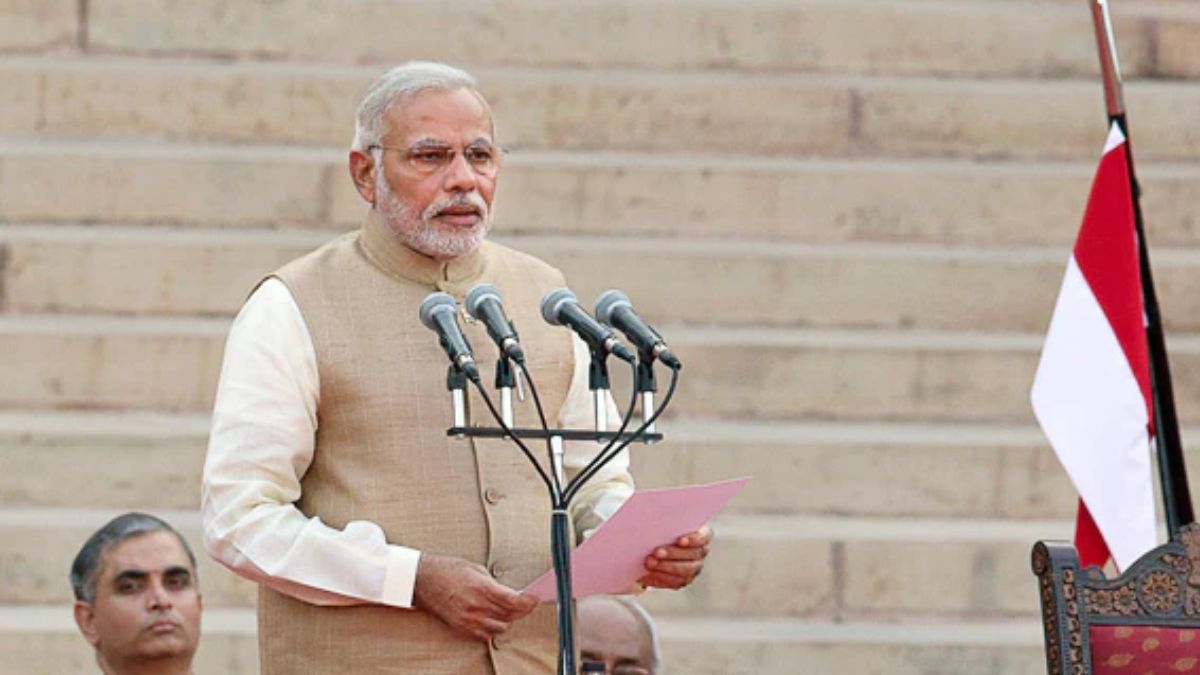May 26 marks a turning point in India’s modern political history.
It was on this day in 2014 that Narendra Damodardas Modi of the Bharatiya Janata Party (BJP) took oath as India’s 15th Prime Minister, marking the beginning of a new chapter in the country’s leadership. His swearing-in ended a ten-year-long tenure of the Indian National Congress and signalled a major shift in the nation’s politics.
Interestingly, May 26 holds significance not just for Indian politics, but also in the world of music. Back in 1967, the legendary British band, The Beatles, released Sgt. Pepper’s Lonely Hearts Club Band, a groundbreaking album that would go on to revolutionise rock ’n’ roll music forever.
If you are a history geek who loves to learn about important events from the past, Firstpost Explainers’ ongoing series, History Today will be your one-stop destination to explore key events.
Here’s a look at what made headlines on May 26.
When Modi took oath as PM for the first time
On the evening of May 26, 2014, Narendra Modi, took oath as the 15th Prime Minister of the world’s largest democracy at a grand ceremony held in the forecourt of Rashtrapati Bhavan.
Modi’s rise to power came on the back of a sweeping mandate in the 2014 general elections. The BJP secured 282 seats on its own — a majority not seen since 1984. With allies in the National Democratic Alliance (NDA), the total tally climbed to 336, marking a clear break from the Congress-led UPA government, which managed just 44 seats.
More than 4,000 dignitaries, officials, and guests were present to witness Modi and his new council of ministers take their oaths before then-President Pranab Mukherjee.
One of the standout moments of the evening was the presence of South Asian leaders, which diplomats and experts say was a first for any swearing-in ceremony in India. Pakistan’s then-Prime Minister Nawaz Sharif and Sri Lanka’s Mahinda Rajapaksa were among the key invitees, in what many saw as a strong signal of Modi’s intent to reset regional ties.
Clad in his trademark kurta and waistcoat, with a pen clipped neatly into his pocket, Modi, then 63, took the oath in Hindi, pledging to uphold the Constitution and serve all citizens “without fear or favour, affection or ill will.” He became the first Indian PM to have been born after Independence.
Before taking charge at the Centre, Modi had served as Gujarat’s Chief Minister for over 12 years, making him the state’s longest-serving CM. His first Cabinet, much leaner than the outgoing Congress government’s 75-plus ministers, focused on “minimum government, maximum governance”, a phrase that would come to define much of his first term in office.
When the Beatles released Sgt. Pepper’s Lonely Hearts Club Band
On this day in 1967, The Beatles released their eighth studio album, Sgt. Pepper’s Lonely Hearts Club Band, which would go on to become a critical favourite in the history of rock ’n’ roll.
It was with this album that the English band set about defining themselves purely as a studio band than live performers.
“All that boy [stuff], all that screaming, we didn’t want any more,” Paul McCartney, one of the band’s members, said. “There was now more to it.” With Sgt. Pepper’s Lonely Hearts Club Band, the Beatles announced their intention to be seen “as artists rather than just performers.”
Sgt. Pepper is often cited as the first “concept album,” and as the inspiration for other great pop stars of the ’60s. The album cover featured The Beatles in colourful styled outfits surrounded by cardboard cut-outs of famous personalities. Designed by Peter Blake and Jann Haworth, it is widely regarded as one of the most influential album covers in history.
Critically acclaimed, Sgt. Pepper’s won four Grammy Awards, including Album of the Year, the first rock LP to receive the honour. It stayed at the top of the UK Albums Chart for 27 weeks and topped the Billboard 200 in the US for 15 weeks.
Beyond commercial success, the album cemented The Beatles’ place as cultural trailblazers of the 1960s.
)